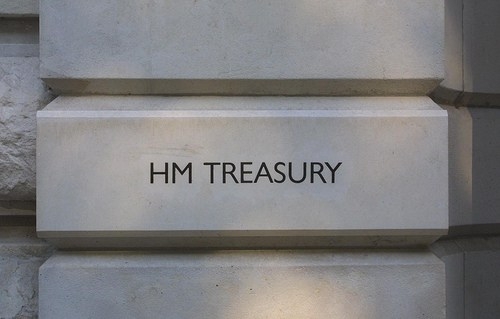The Government has this afternoon announced a raft of changes to take effect in the coming months with implications for Financial Planners.
Rule amendments to ISAs, death benefits on annuities, and tax have been put forward by the Chancellor.
Below are some of the key points of interest from the Autumn Statement.
{desktop}{/desktop}{mobile}{/mobile}
ISAs and Savings
- New ISA limit to go from £15,000 to £15,240 in April
- Passing on ISAs. At the moment, when someone dies, the savings in their ISA lose their tax-free status and their spouse starts paying tax on that money. When someone dies, their husband or wife will be able to inherit their ISA and keep its tax free status.
- Treasury said 150,000 people a year lose out on the tax advantages of their partner's ISA when their partner passes away.
- From 3 December 2014, if an ISA holder dies, they will be able to pass on their ISA benefits to their spouse or civil partner via an additional ISA allowance which they will be able to use from 6 April 2015.
- The surviving spouse or civil partner will be allowed to invest as much into their own ISA as their spouse used to have, in addition to their normal annual ISA limit.
- Next week Government will publish the market leading rates on the new 65 plus pensioner bonds, which will be available from January.
Pensions
- Confirmed that the 55% death tax that currently applies when you pass an unused pension pot on to your loved ones will be abolished. People will be able to pass on their pensions to loved ones tax free.
- People who die before the age of 75 with a joint life or guaranteed term annuity can pass that on tax free too.
{desktop}{/desktop}{mobile}{/mobile}
Tax
- The tax-free personal allowance is being increased by a further £100 in April 2015, to £10,600
- Treasury figures: Typically, someone earning between £10,600 and £42,385 will be £825 better off by 2015-16 as a result of increases in the tax-free personal allowance since 2010.
- Government said it has cut income tax for 26.7 million taxpayers.
- Unlike previous increases in the personal allowance threshold, this increase will be passed on in full to higher rate taxpayers paying 40% tax. Rate threshold goes from £41,865 this year to £42,385 next year.
- No more employer National Insurance contributions (NICs) on apprentices under 25. This is in addition to the announcement made at Autumn Statement last year that employers won't have to pay NICs on under 21s from April 2015.
- The government is clamping down on tax avoidance by multinational companies. Currently some large multinational companies divert profits abroad through complicated business structures, such as the so-called 'double Irish', in order to avoid paying taxes. The government is introducing a 'diverted profits tax' to apply to a company's profits that have been diverted from the UK through complex arrangements such as these, and will apply to both UK and foreign multinational companies. This will be introduced from April 2015.
- Treasury said: "If a company conducts a lot of activity in the UK – sales, for example - but can avoid paying corporation tax by moving profits generated in the UK to other countries through the manipulation of the international tax rules, the UK will now be able to tax those profits at a rate of 25%."
- Banks will increase corporation tax payments
Treasury: "Some banks made large losses during the financial crisis, and subsequent misconduct and the costs associated with mis-selling scandals. These losses are now being used by banks to eliminate corporation tax payments on current profits.
"It is unsustainable that some banks will not be making corporation tax payments for another 15 to 20 years. So from 1 April 2015, the government will therefore restrict the amount of banks' profits that can be offset by carried forward losses to 50%, increasing their contribution to public finances through their tax payments."
Growth
- The UK has the fastest growth in the G7 and the deficit is forecast to
- Treasury: "A year ago, we expected GDP to grow by 2.4%. In March we expected 2.7%. Today, the British economy is forecast to grow by 3%."
{desktop}{/desktop}{mobile}{/mobile}
Stamp duty
-To be cut for 98% of people who pay it - only the highest value residential properties will pay more
- Treasury announced: "Under the old rules, Stamp Duty Land Tax paid at a single rate on the entire property price. Now, you will only pay the rate of tax on the part of the property price within each tax band – like income tax. Under the old rules, if you bought a house for £185,000, you would have had to pay 1% tax on the full amount – a total of £1,850.
"Under the new rules you don't start paying tax until the property price goes over £125,000, and then you only pay tax on the price of the property within the tax bands over that price. Under the new rules, you'll pay nothing on £125,000 and 2% on the remaining £60,000. This works out as £1,200, a saving of £650.
"This will make the system fairer, and means stamp duty will be cut for 98% of people who pay it."
- Business rates will be cut and capped. About 380,000 of the smallest businesses will pay no rates at all.

